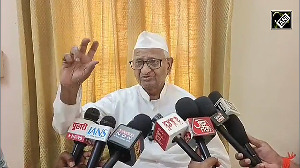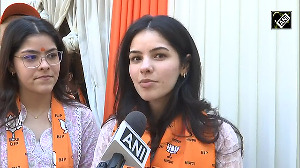Musharraf said Mukhtar Mai, whose rape was ordered to punish her family for her brother's alleged affair with a woman from another family, was being taken to the United States by foreign nongovernment organizations "to bad-mouth Pakistan" over the "terrible state" of the nation's women.
"She was told not to go" to the United States to appear on media there to tell her story, Musharraf told the Auckland Foreign Correspondents' Club.
He said NGOs are "Westernized fringe elements" which "are as bad as the Islamic extremists."
Musharraf acknowledged placing the 36-year-old on the list of people banned from leaving Pakistan while responding to media questions during a three-day visit to New Zealand.
Pakistan Wednesday lifted the travel ban after Mai appealed to Prime Minister Shaukat Aziz.
Mai gained attention at home and abroad after she defied a culture of shame that often surrounds rape victims by going public over her June 2002 assault in the eastern Punjab province.
In August 2002, six of the suspects in her case were sentenced to death and the other eight acquitted. This March, another court in the province overturned the convictions of five men, and reduced the death sentence of the sixth to life in prison.
Musharraf said atrocities are perpetrated daily against women in developing nations round the world -- "in Kashmir and many other places."
"I don't want to project the bad image of Pakistan," he told the journalists' club.
"I am a realist. Public relations is the most important thing in the world," he said, adding that media misperceptions would discourage tourists from traveling to Pakistan.
"Pakistan is the victim of poor perceptions. The reality is very different," Musharraf said.
He defended his regime's treatment of women, saying it was working for their emancipation. Rape was not "a rampant malaise Pakistan suffers from every day," he said.






 © 2025
© 2025